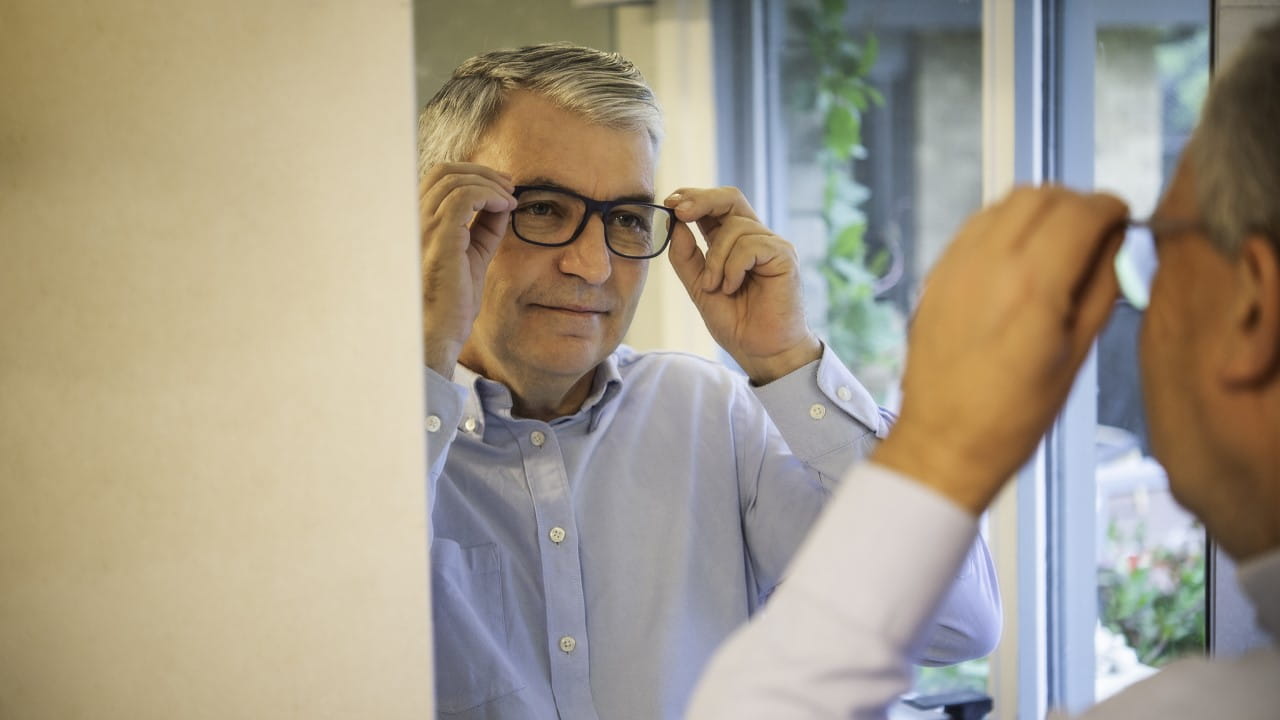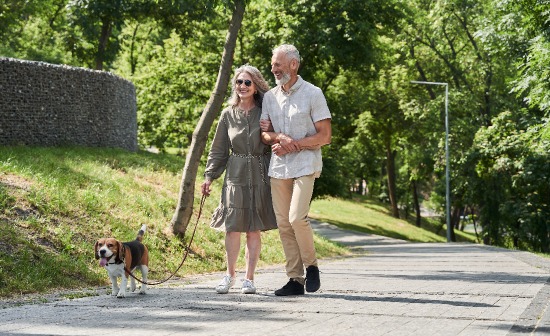“Making sure you’re on top of your regular checks means if a condition is found early, the interventions that you need to help you with your condition are likely to involve more conservative and non-invasive treatment options”—Rebecca Harwood, CEO Insurances, Australian Unity.
Key points
- Preventative care can make dramatic differences to your physical health and your overall wellbeing.
- One of the key parts of preventative care are the small choices we make that are related to lifestyle choices.
- Making sure you’re on top of your regular checks with your GP means if a condition is found early, it's more easily treatable.
Imagine if you could take simple steps today that could help you stay healthier for longer and prevent illness in the future. The great news is you can – and you don’t have to develop a taste for kale or kombucha to do so. It’s all about shifting your healthcare approach from exclusively focusing on treating illnesses to also encompassing preventative care.
Preventative healthcare has benefited from more than two decades of strong, evidence-based development.
Being moderately active—such as engaging in 30 minutes of brisk walking five times a week—is just one example that has huge returns. It can cut your risk of cardiovascular disease by up to 50 percent.
Regular physical activity remains one of the most effective long-term preventative health measures, but it needs to be consistent. A three-month gym membership won’t have a lasting impact if followed by months of inactivity. Unlike a savings account, you can’t stockpile fitness and draw on it later.
The notion of “later” can cover quite a lot of time. According to the latest Australian Institute of Health and Welfare statistics, men in their mid-60s can expect to live another 19.9 years, while women of the same age can expect to live another 22.6 years. On the whole, Australians are living longer than ever before, which makes preventative care even more important.
Are you ready to take control of the future of your health – and, as a result, your overall wellbeing? Here's how.

Focus on lifestyle choices
It’s the seemingly small decisions we make each day or week that add up to the biggest health impacts over time. Many of the most common diseases affecting Australians today are strongly influenced by lifestyle choices.
So honestly ask yourself: are you being physically active? This means getting in a total of 150 minutes of moderate intensity exercise each week. Are you eating a balanced, nutritious diet, one that’s filled with plenty of fruits, vegetables and wholegrains, a moderate amount of dairy, and only a small amount of lean meat, poultry or fish?
Are you contributing to your wellbeing by getting enough rest at night, maintaining a healthy weight and creating space to do things that bring you joy, while avoiding the things that won’t, such as drinking too much alcohol or smoking?
While these principles are familiar, they become especially critical after age 50, when the risk of developing chronic conditions increases. At this stage of life, reinforcing healthy habits becomes one of the best defences against age-related illness.
Create a support team
When you’re on this journey of preventative care, you don’t have to take it alone. Making your health a priority means reaching out to the right people for guidance and support.
The first and most important member of your health support team should be your GP. Whether you’re highly active or mostly sedentary, having a trusted doctor who can monitor your health, assess risk factors, and provide tailored advice is essential—especially from middle age onwards. A strong GP relationship can help cut through overwhelming health information and focus on what’s relevant to you. Regular check-ups are key.
Rebecca Harwood, CEO Insurances at Australian Unity, says this is crucial in helping to prevent the need for more serious treatments in the future too. “Making sure you’re on top of your regular checks means if a condition is found early, the interventions that you need to help you with your condition are likely to involve more conservative and non-invasive treatment options,” says Rebecca.
Then there’s a whole range of support options, no matter what your health goal. “Depending on your health insurance, extras can cover things like dental – because good oral health is linked to better overall health outcomes – plus physiotherapy and osteopathy, which are all really good preventative treatments,” says Rebecca.
“At Australian Unity, we have products that pay benefits to help you quit smoking, lose weight or have health checks that aren’t always covered by Medicare, such as bone density scans and health management programs to treat an underlying condition.”

When it comes to mental health, Rebecca adds, “We have a program to help members manage depression and anxiety, called MindStep, which is based on cognitive behavioural therapy. Our view as a fund is that we want to support you as best we can. We want to help you manage your physical and mental wellbeing, so you stay healthier for longer.”
If making multiple changes feels overwhelming, start small—commit to just one positive action this week. Once it becomes a habit, add another. At 50, you still have a long, vital chapter ahead. Whether your current health is good or could be better, it’s not too late to make meaningful improvements.
It goes to show that by shifting your healthcare regime to a more holistic preventative approach, you can help offset – or at least catch earlier – some of the more common ailments that you may experience as you age.
Disclaimer: Information provided in this article is of a general nature. Australian Unity accepts no responsibility for the accuracy of any of the opinions, advice, representations or information contained in this publication. Readers should rely on their own advice and enquiries in making decisions affecting their own health, wellbeing or interest. Interviewee names and titles were accurate at the time of writing.


